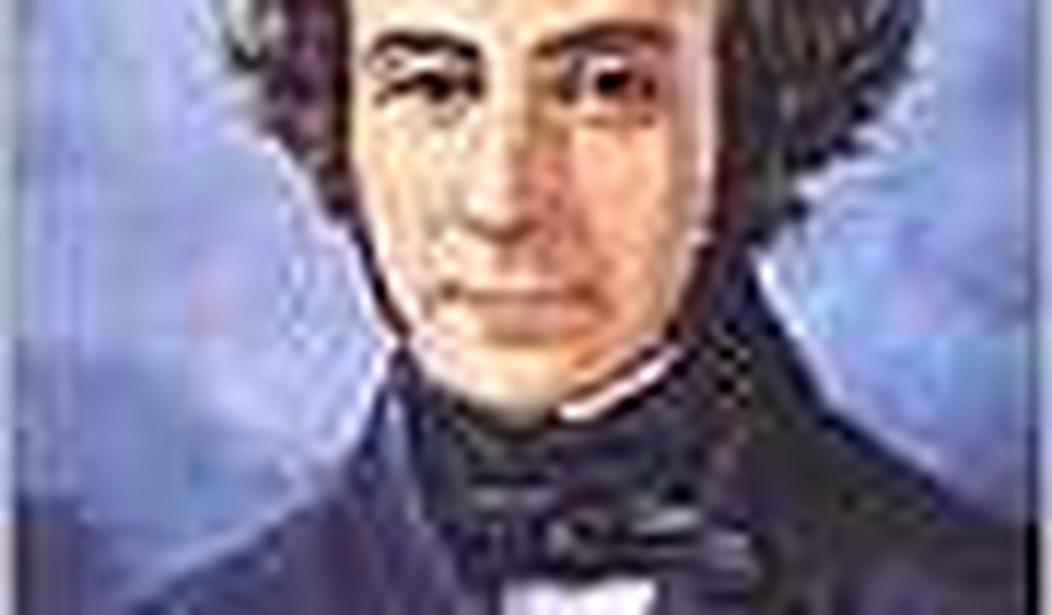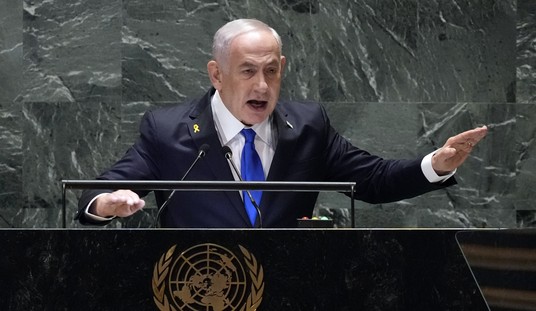It may seem a stretch to invoke Alexis de Tocqueville to explain the conflict in Gaza, but Tocqueville was arguably the most insightful political theorist to ever put ink to a page. While many people have encountered Tocqueville through his Democracy in America, few have read his equally important work on revolution, The Old Regime and the French Revolution. And it’s that work that goes a long way toward helping us understand how we got to the events of Gaza.
Tocqueville did not see the French Revolution as the outcome of the work of the revolutionary radicals. Rather, he concluded that those who were least interested in having the revolution were, ironically, its unwitting creators.
So too with the events in Gaza: would there have been an Israeli incursion into Gaza if those who went into the streets to stop Israel — those who never wanted that incursion into Gaza — had earlier gone into the streets to protest the rockets that rained down on Sderot for seven years? Would there have been an incursion if the self-proclaimed peace and justice crowd had done something other than providing forums for blatant propagandists justifying murder?
You see, the essence of terrorism is not to change regimes but to influence the public agenda. Terrorists crave legitimacy and justification. They develop a symbiotic relationship with the media. They need sustaining support in the faith community and the peace and justice community.
Throughout history, no regime has ever fallen to terrorism. In fact, with two historical exceptions, Cuba and Nicaragua, no indigenous regime has ever fallen even to guerrilla warfare, a mode of warfare far and away more potent than terrorism. Everyone who understands the ways in which regimes change understands this reality.
Acts of terrorism, brutal, despicable, and often nonsensical, function as exercises in propaganda, with multiple messages for multiple audiences. There is a message for the society being attacked, but since every player in the game knows that the society being attacked cannot be overthrown by the terrorists, that message is largely inconsequential. No regime rolls over and goes away because a restaurant is bombed or an airport is shot up. Even the collapse of two skyscrapers and the deaths of 3,000 people only create a hardened resolve and a willingness to go to war.
The larger message is for two other groups. First, there is the terrorists’ natural constituency, whose hope for regime change is kept alive through the propaganda of ruthless violence. Such violence gives the appearance of strength in the presence of military weakness. Terrorists hijacking an airplane and getting unending coverage in the Western media will barely have an impact on the daily routing of flights. The terrorists most certainly will not overthrow a government or even get it to make meaningful political concessions. But for the terrorists’ supporters, the symbolic affirmation of such spectacular publicity replaces the inconvenient reality of military weakness with the necessary fantasy of military power.
Then there is the constituency comprised of those groups who are so wedded to the embrace of victims — real and imaginary — that the most despicable violence is not an act of evil, but a cause for investigation; a statement written in desperate measures by desperate people. Once a group such as Hamas has been defined as a victim, then its acts have to be explored, dissected, explained, rationalized, put into a context, but never condemned. Victims are, by such groups’ definitions, incapable of evil.
For four decades I have been attending forums on the Middle East conducted by liberal church congregations, colleges and universities, self-anointed peace and justice groups, and the usual gaggle of what are referred to as “the good people.” These people and their groups are intrinsic to the terrorists’ strategy. Their rationales for terrorist violence are vital to the continued use of violence. These so-called “good people” are the conduit to evil, and they are invariably self-proclaimed “progressives” or “liberals.”
All terrorist groups want people who will ask, “Why?” They want people who have long ago forsaken moral judgments for moral relativism. They want the guy who will stand up at the PTA meeting and say, “9/11 is the result of our foreign policy,” and not conceive of the possibility that he is uttering a cliché he could not intellectually defend, but think he is being profound.
It is not just that such people, by justifying violence, contribute to the continued perpetuation of violence, but also by being partisans for evil, they have given up the claim to be honest brokers for peace. In the case of liberal church groups, they have become so supportive of Palestinian terrorism that they would be incapable of being a broker for serious engagements or dialogues for peace. Does anyone think that the leadership of the Presbyterian Church, for example, exudes any moral authority when it comes to the Middle East? They are simply another militia, albeit one that justifies other people doing the killing they tacitly support.
In rethinking Tocqueville’s admonition about those causing an event who least wanted it to occur, I cannot help but picture how things in the Middle East might have been different this morning if the so-called “good people” had not squandered their moral authority on partisanship. Would Hamas have continued its missile campaign against Israel if the “good people” had gone into the streets to protest it? Would Israel have been more receptive to calls for a “cease fire” if over the past seven years of Hamas’ rocket fire, the United Nations had held emergency meetings to call for a Hamas cease fire? Could the liberal churches have mobilized today as honest brokers for peace had they not so glorified in one-sided boycotts and gloated over their personal engagements with terrorists?
I guess we won’t know, for a civic or church group regaining squandered moral authority is like a prostitute trying to regain her virginity.









Join the conversation as a VIP Member